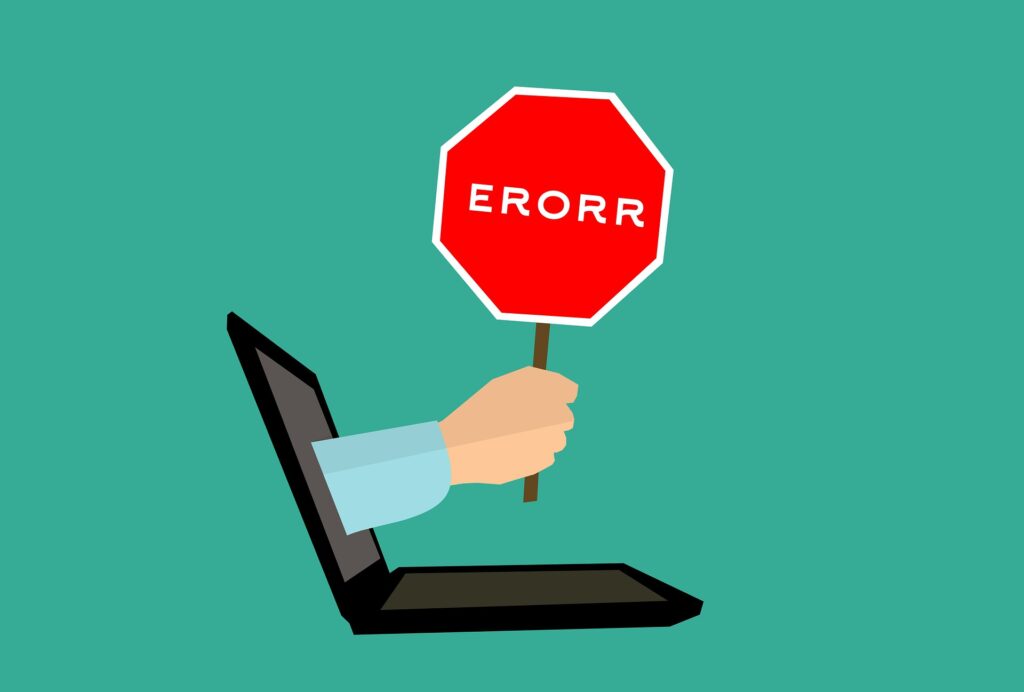
Every website owner now understands how important an online presence is. As users increasingly browse and shop online, small and large business owners need to make unique web pages to stand out from the crowd. We are not just talking about beautiful designs or high-quality products, but about high positions in search rankings. To do this, the owners hire specialists or seek the help of an SEO agency.
Remember that there are many critical moments in this area, so yourself that everything is perfect. Of all the things that can hurt rankings, we’ll talk about how content duplication can hurt.
Many businesses today are dealing with a similar issue. This can happen accidentally, for reasons beyond the website owner’s control, or purposefully when businesses and users just copy website material.
We’ll discuss what it is, why duplicate content is something to concern about, how to resolve redundant content issues, and much more.
What is duplicate content?
Duplicate content stands for either completely identical parts of the content or almost similar ones with slight modifications. If the text is completely identical, then often such materials are called “copy-paste”, since the authors simply copy information from primary sources and paste it for publication on their resource. Such authors are called “copy-pasters”.
When the very same data appears on many Internet pages, this is referred to as duplicate pages. Such material may appear on one or many pages, making it difficult for bots to distinguish which information is original and which is just scraped.

Internal duplicate content
Your website has a plethora of URLs. If the materials on them are repeated, it suggests you face duplicate content.
This doesn’t spoil everything. It can, however, have a detrimental effect on how bots can index your site and its web pages. A duplicate text that appears on several pages of your online resource may indicate that you have structural issues. To avoid this, you should do frequent SEO audits to discover various problems as soon as possible.
This might make it challenging for bots to analyze what they need to rank and which webpages are considered truly useful. This is the main reason why unique content is essential for SEO. The more difficult you make it for bots, the longer it will take for your pages to be properly indexed.
Search engine crawlers want to see unique, valuable, and instructive information. Internet users should not submit queries and obtain identical results from a myriad of domains. Duplicate content harms rankings as a result. But in case you have no idea how to tackle such a problem, you can always utilize content writing services to greatly improve your website materials, which are unique and distinct from the competition.
External duplicate content
You may confront not just the reality that part of your online resource’s internal elements may be repeated. The presence of ‘cross-domain duplicate material’, which appears on other websites, can also be identified. If you exclusively upload non-standard and unique info, it may wind up appearing on other domains. This can happen with or without your permission, and it can also trigger duplicate content issues.
This sort of material may both be syndicated and scraped. Here we’re talking about employing content to boost a company’s or brand’s visibility. So, you can post the same stuff on your corporate blog as you do on the official website. Furthermore, third-party online resources may wish to promote your beneficial material, or you may choose to distribute duplicate sponsored content across numerous sites. This may be extremely beneficial, especially if the publisher not only distributes your information but also includes a follow link to your online page. In this scenario, it will be beneficial to SEO.
When we talk about scraped content, we mean taking materials and republishing them without the author’s permission. As a result, you may have duplicate content problems since bots will have a tough time determining which domain is the creator of the original. At the bare minimum, bots will boost the ranking of another domain. In such a circumstance, it is critical to detect identical materials quickly. So, there is both beneficial and harmful duplicate content.

Why is having duplicate content an issue for SEO?
How does duplicate content affect SEO? Those involved in SEO services are well aware that any complications can hurt their position in the SERPs. You should comprehend the reasons why you should prevent duplicate material, even if there is excellent and terrible duplicated information.
In general, even though bots have progressed, it is still difficult for them to distinguish between original and pirated information. You may want to incorporate content from different resources to broaden your web resource and provide readers with important information. However, this will reflect poorly on your domain as well as the original one.
If you have unique knowledge that other online sites wish to share, make sure you obtain a backlink. Otherwise, bots will assume another domain to be the original source and boost its ranking, leaving you with nothing. In any event, to avoid frequent duplicate content vulnerabilities, you must develop original material for SEO.
Does Google penalize duplicate content?
There is a common misconception among webmasters and website owners that those who copy information would be penalized by search engines. We want to reassure you straight away. Google doesn’t ban or have any penalties for duplicate content. You may forget about it as if it were a terrible dream.
The only thing is that smart algorithms have a tough time determining what sources are really genuine. In every other way, everything is fine. Bots may frequently just boost the ranking of domains that are not the sources by recognizing duplicate content. As a result, if you use other people’s materials on your website, you should always credit the source. Similarly, you should make certain that you obtain credit for any information published on other websites.
The majority of website owners and managers of online stores are concerned about duplicate content in their product descriptions. Many sellers utilize the same product descriptions given by suppliers. Many people are concerned that if their description does not alter, they may lose their place in the SERPs.
You should, however, pay heed to John Mueller’s duplicate content statement, in which he goes over everything related to duplicate content product pages and reassures sellers that they have nothing to worry about. Only those who craft websites that are somehow similar to other pages should be really careful. If this occurs, the search engine may levy fines.
Ultimately, having a small percentage of duplicate content does not result in any penalties. In general, your website will be fine. However, specific pages with identical information may have ranking issues, so you should avoid using copied content.
Duplicate material might be good or negative. So, for example, duplicate page titles, internal exact copies of pages, duplicate sponsored content, and just copypasting content from other sites is bad practice and such pages won’t rank well, but for ecommerce, duplicate product descriptions are common practice. But remember that unique texts are always an advantage.

Common duplicate content issues (and how to fix them)
Identical materials can occur for a variety of reasons. Firstly, there are various types of SEO, it is understandable that numerous issues might arise on the technological side. That is why we will inform you of the most typical issues and provide duplicate content tips.
www and non www (also http and https)
Many webmasters experience this dilemma since a website might have many versions with identical content. As a result, you may create www and non www duplicate material, as well as http and https duplicate stuff, which will wreak havoc on your SEO efforts. This might be a problem if many versions of the site are active. In such circumstances, experts employ 301 redirects as well as rel canonical. Moreover, specify the main version of the site in the Google Search Console.
Trailing slash
Say, you own the domain www.hello.com. A trailing slash might result in redundant content if there is also www.hello.com/. Remove the superfluous one and create a 301 redirect from it to the original page to fix the issue.
Content republishing
If another web resource decides to publish your material, this web resource will receive all credit for your original content and you will be left with nothing. Make sure the third party links to your online page to avoid this. The bots will recognize you as the source this way.
Capital letters in the URL
Such a small mistake can lead to the creation of repetitive content. If your site hello.com has the URL address hello.com/page2.html and also hello.com/Page2.html, then consider that you are overweight your SEO. Just remove the redundant page and configure a 301 redirect from it to the original page.
Global expansion
If you wish to grow your firm and enter worldwide markets, you might consider registering a regional domain in another language. However, just translating text from your official website into another language will be regarded as non-unique, i.e. copied. To avoid duplicate content issues for multiple locations, use a hreflang tag on pages that contain the same content localized for other languages and countries.
If you want to go global, you must localize the content rather than simply translate it. You should share information that is appropriate for a distinct market, and you can also begin writing blogs for SEO in other languages to present your consumers with relevant information for their location.

How to check a website for duplicate content
A myriad of duplicate content tools is available online nowadays to assist in the detection of duplicate materials. You can make use of the following tools:
- • Copyscape;
- • Duplichecker;
- • Smallseotools;
- • Plagiarismcheck.org;
- • Siteliner.
However, if you want comprehensive assistance, then our team at Mellow Promo is ready to offer you our SEO audit services to identify and eliminate not only duplicate content problems, but also other problem areas that may affect your web resource’s promotion in search results. Furthermore, we may provide our expertise in crafting original content friendly for SEO.
FAQs
What percentage of duplicate content can I have?
Traditionally, search engines do not penalize identical materials. So you won’t find an answer on what a “duplicate content percentage” is acceptable. Also, it depends on the type of page and niche. Therefore, try to create unique content and focus on generally accepted practices among successful competitors.
How can I fix duplicate content?
If you are trying to get rid of all the problems connected to identical materials, then the best you can do is to take advantage of 301 redirects. This allows you to lead viewers to a specific version of a web page that will receive full credit for unique information.
What is the best way to avoid duplicate content?
The first step is to create truly unique and one-of-a-kind materials. Furthermore, technological audits should be performed regularly. You may hire SEO professionals who will assist you in scanning the website for duplicate material and resolving any issues.
Does Google scan websites for duplicate content?
Yes, it does this in order not to offer users redundant information. In this regard, you will not receive any penalties, but your pages will rank worse if non-unique content is present.
Can Google punish duplicate content?
A page containing non-unique materials may not rank highly since it is not distinctive and beneficial to the user, but the site will not be penalized. However, sites that entirely copy other sites and do so knowingly may face punishment.
Do duplicate page titles affect SEO?
Yes. All pages must have a unique Meta Title including the keyword. This is one of the most important elements of SEO and duplicate text should be avoided here.
Is it bad to have duplicate content for products?
No, you will not be punished if you use vendor product descriptions. Keep in mind, though, that certain pages may not rank high enough.
Is it true that Google penalizes duplicate content in other languages?
There are no repercussions. However, if you just translate your materials into another language, you will end up with identical information. Utilize the hreflang tag to inform the search engine that they are the same web pages, but the only difference is language. And, if they’re good enough, they’ll rank well in the respective language niche.





